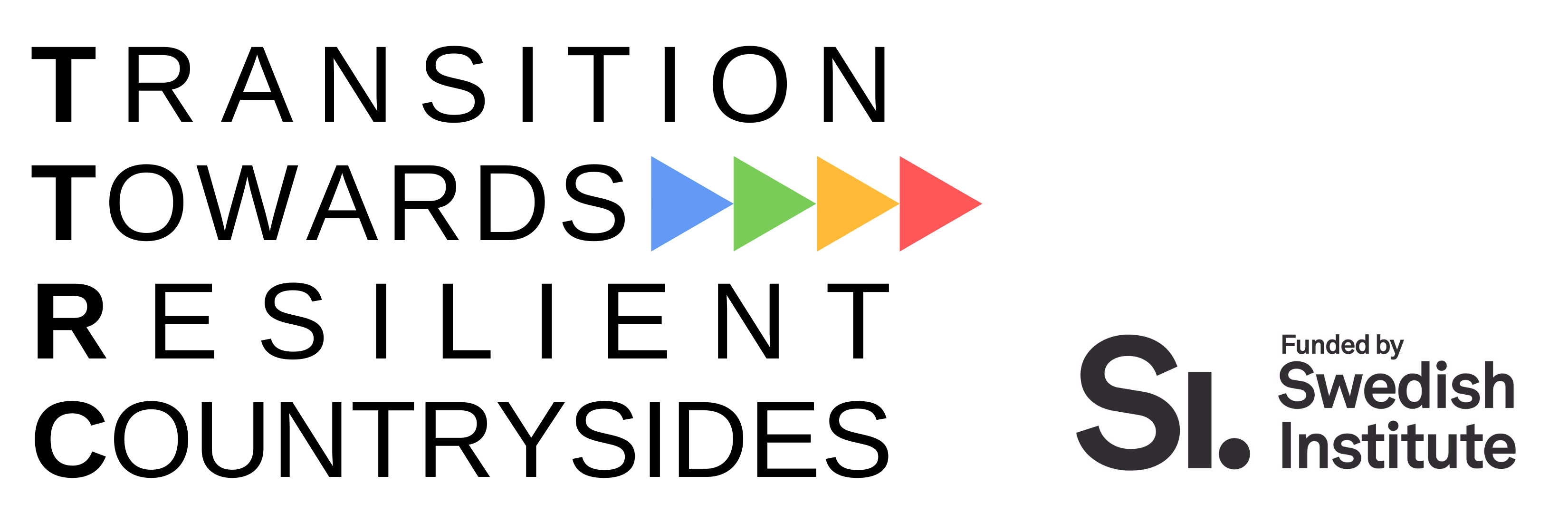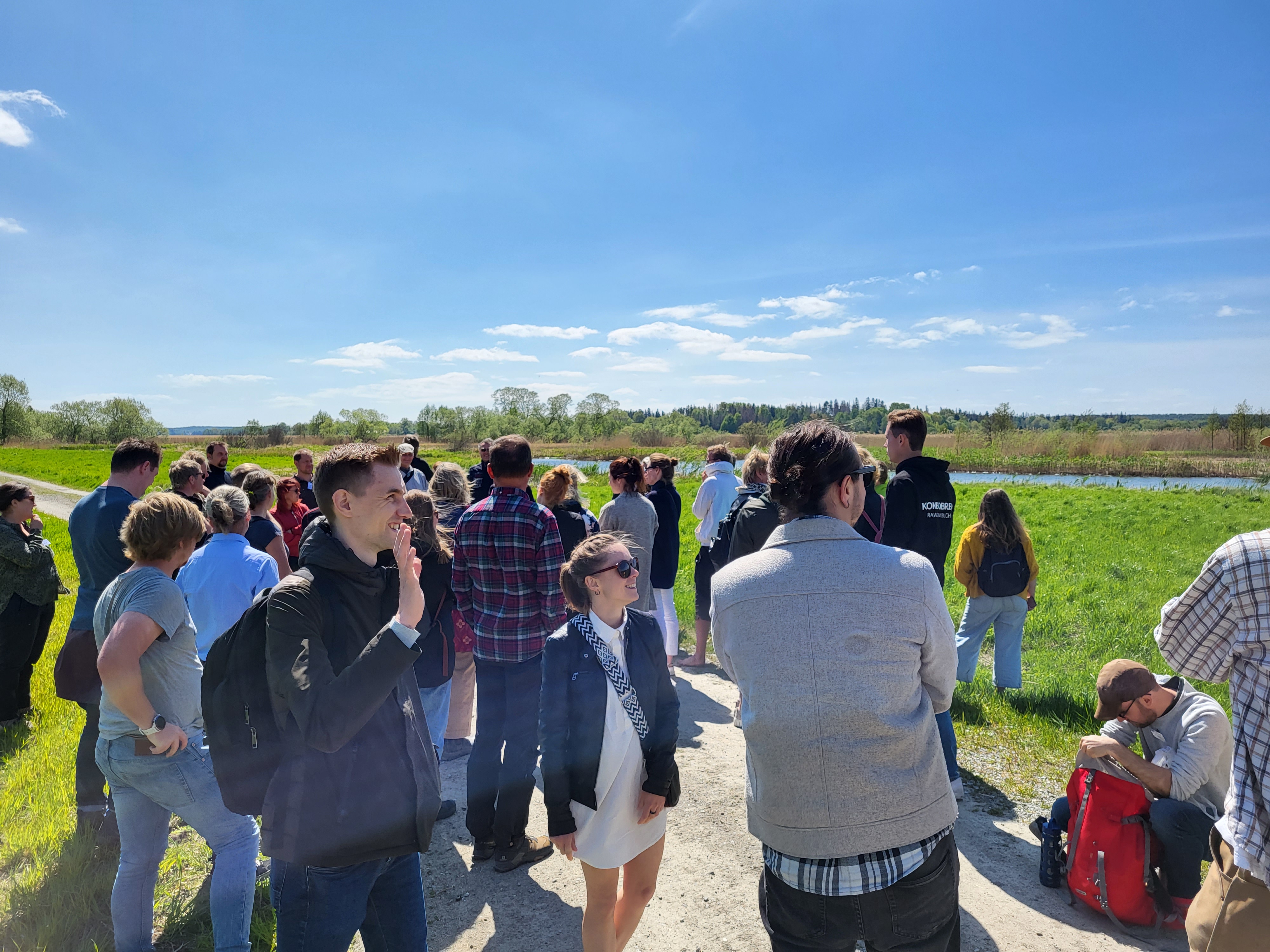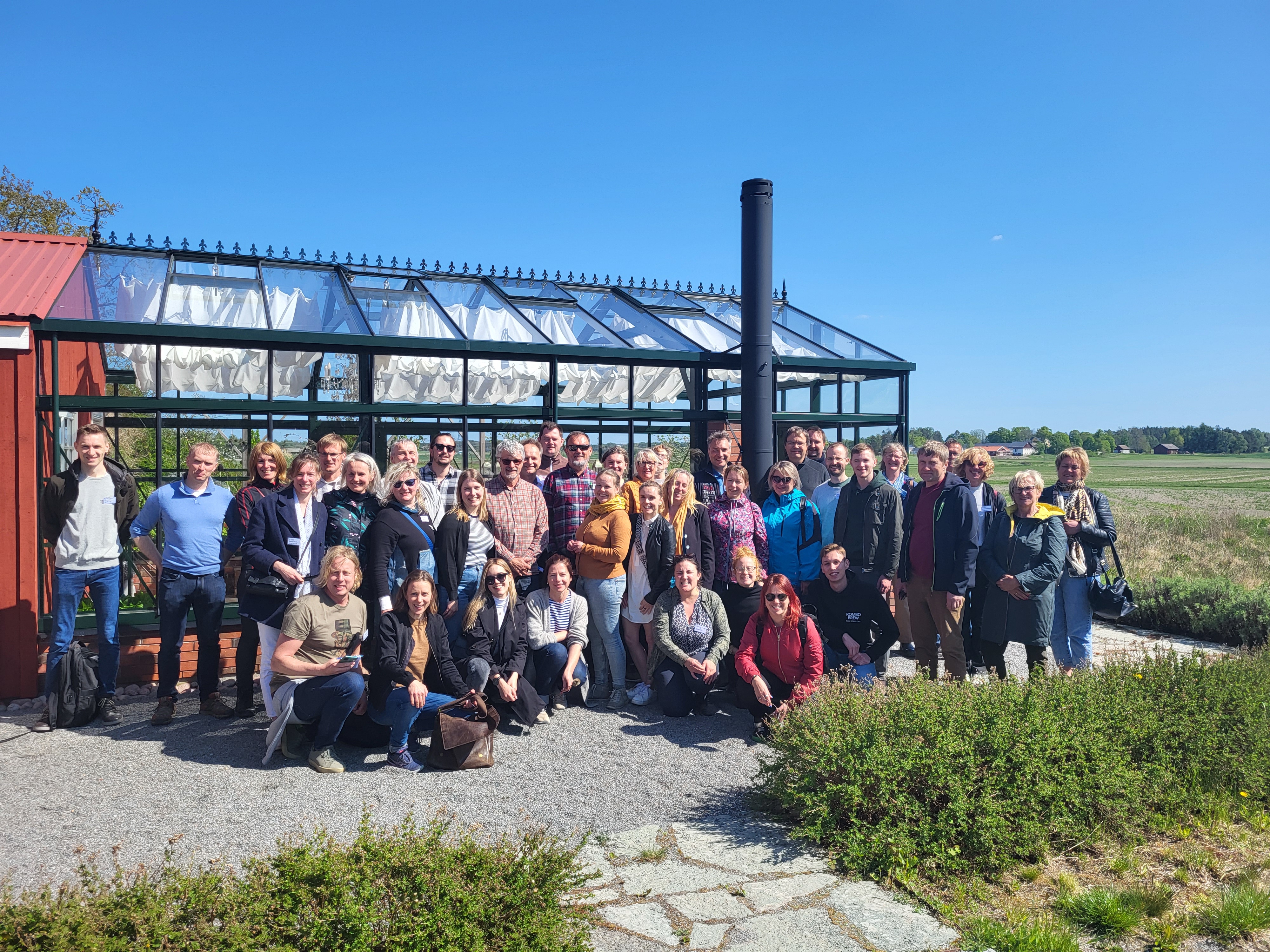
The first edition of the Transition Towards Resilient Countrysides conference was held in May 2022
We gathered in Upplandsbygd, Sweden, and for three days we did explore challenges and opportunities for rural areas during study visits, seminars, and discussions. With us, we had 50 passionate enthusiasts from nine partner organisations in Lithuania, Estonia, Latvia, Finland, and Sweden to discuss rural sustainability and development. Like Upplandsbygd, our partners operate as Local Action Groups (LAG) using the LEADER method. Our mutual goal is to create a more living and thriving countryside for all! Here you can see the program for the conference: TTRC conference final.pdf
MONDAY MAY 23RD
Introduction, sustainable entrepreneurship and resilience.
The topicfor the first day was sustainable entrepreneurs and resilience. During the day we heard from local entrepreneurs and learned more about resilience in small-scale businesses and how to make sustainability initiatives profitable.
Emmas presentation: Introduction.pdf
Jenny and Leifs presentation: Exploring Sustainability.pdf
During the afternoon we heard from several exciting speakers. First out was Louise Hård af Segerstad who spoke on resilience in small-scale businesses and the importance of adapting to turbulent times. To truly achieve long-term economic sustainability, it is important to consider ecological and societal needs. Old economic models have historically been bad at this, and a new way of thinking is needed moving forward.
Louise presentation: Louise- Resilient business dev220523.pdf
We also heard from the creators of Kombobrew who told us their story of starting a kombucha brewery. Everything from the recyclable aluminium can to the organic ingredients were chosen to increase the sustainability of their product. Furthermore, since kombucha is brewed using fermentation, very little energy is used during production.
Finally, Pia Andersson explained how our consumption patterns have changed over time and that sustainability is now prioritised more than ever. Studies even show that Sustainable companies generally outperform their less sustainable counterparts. To achieve the Sustainable Development Goals, we will also need strong partnerships – and more importantly friendships – to succeed. That is why gatherings like this are so important. Hopefully, this will be the first of many!
Pias presentation: Pia Andersson - Economic profit in sustainable initatives.pdf
TUESDAY MAY 24th
Wetlands, Aquaponi and diversification in small scale business in the bio economy.
We ventured out of the city and are now in the Knivsta countryside 40 minutes north of Uppsala. Today we will start to hear from Malin Dacke at Knivsta municipality. She explains what it means to be a countryside municipality with a blend of smaller cities and large rural areas. The closeness to nature mixed with great communication possibilities makes Knivsta a great municipality to live in and the number of local businesses and entrepreneurs is steadily growing.
Knivsta Municipality presentation:
We continue with Upplandsbygds very own Pontus Gunnarsson and his research on the future of aquaculture. Fish farming has grown enormously and now contributes the same amount of seafood as marine fisheries. The fish farming sector is evolving with improved methods and novel feeds based on ingredients such as insects and mould! Aquaculture has great potential in Baltic countries and can be a great way of creating revenue and food security for rural and coastal areas.
Pontus presentation:
Aquaculture and Aquaponi.pdf
Next up is inventor and entrepreneur Fredrik Holmén who found a hidden treasure in the reeds. He realised that reeds absorb tons of nutrients from seas and lakes, and that harvesting them might be a great way to prevent some of those nutrients from ending up in the Baltic Sea. He spent many years experimenting with different machines and is now the proud owner of a business that among other things supplies reeds for straw production. He is also a part of an research project in which his reeds are transformed to a sustainable and tasty feed for cattle!
24th of May, Noon
We continue our trip through the countryside to the farm of Leif Eriksson who has his own way of dealing with excess nutrients. A few years ago, he built a wetland on the edge of his farmland to help collect phosphorous leeching from his soil. Every five years he collects the phosphorous-rich sludge and then reuses it as fertiliser for his crops. This circular method results in less nutrients escaping to nearby water bodies and also lowers the cost of fertiliser. It also creates a rich habitat for local insects and birds.

24th of May, Afternoon
For lunch we stopped over at Herresta Lada where the owner Tord Olsson introduced us to his family business. The venue offers plenty of activities including cooking and calligraphy classes, accommodation, wine-tasting, and even long-term storage possibilities supplying the owners of a steady stream of different revenues. The estate has beautiful sights of the surrounding fields and forests, and to boost local biodiversity, stylish insect hotels and beehives have been built. With a pond to host fish and amphibians on its way.
https://herrestalada.com/en/
24th of May, Dinner
To round of the day, we had dinner at Paradiso café and farm shop in Knivsta. Paradiso is run by local farmers Maja de Bernardo and Fredrik Svensson who also founded the coop-farming concept LokaltOdlat (Locally Grown). Maja and Fredrik grow fish and vegetables in a closed aquaponic system where the fish provide nutrients for the vegetables and the vegetables in turn clean and oxygenate the water. This lowers water consumption and minimizes the need for fertiliser. For dinner, we had delicious home grown Clarias (a type of catfish) and vegetables from the green house.

WEDNESDAY MAY 25th
Resilience in small-scale food production.
- Weaving in additional values to local food production: Agroforestry, short supply-chains, and community action.
The third day started out with bang at Ylwa and Kjell Sjelin at Agroforestry Vattholma, deepening our knowledge of agroforestry and eco-farming. We’ve been shown many interesting alternative techniques of farming more sustainably, and the technology to make it happen. The same goes, of course, for forestry. The future of agriculture is reparative, according to Ylwa and Kjell. This means that farming can improve (rather than tear down) our life-supporting systems if we do it correctly. We need to improve our carbon sequestration, increase our biodiversity and generally think an extra step or two about how we produce food and materials.
Last but not least we visited Östhammar, our fourth municipality in Upplandsbygd. We felt the breeze of our common sea, Baltic sea


We had a great lunch, a nice walk by the sea and some interesting presentations by @källör sue lifvendal from our projekt ”attraktive and vivid villages” and our own LAG-member and expert in Baltic sea projects
Stefan Edelsvärd.
We wrapped it up with a work shop talking about nice and inspiring things we experienced together these days